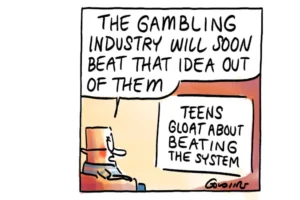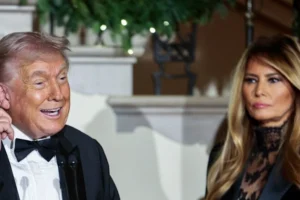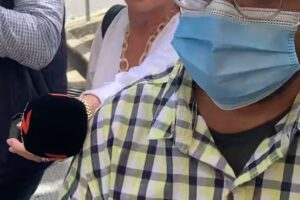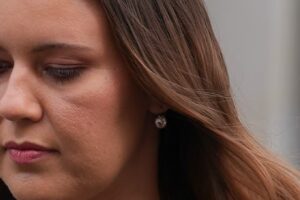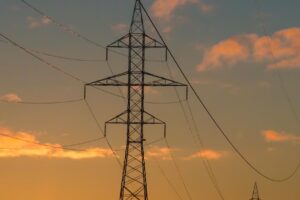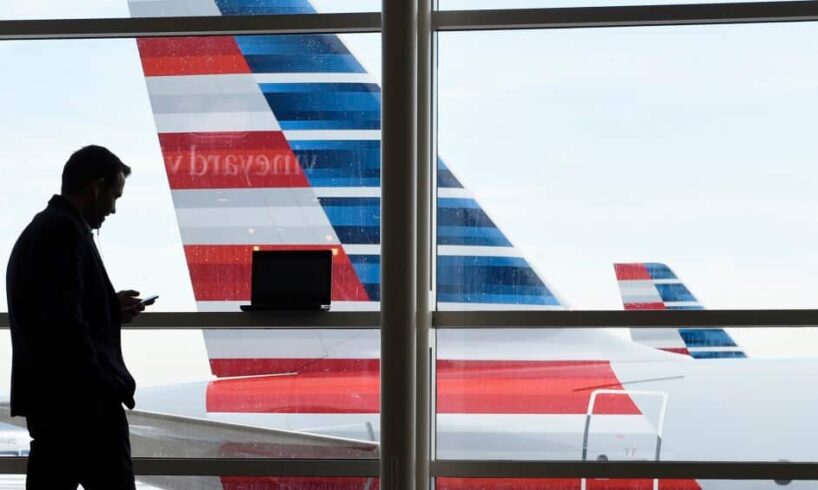
Earlier this year, Australian writer Alistair Kitchen made international headlines after he was detained for 12 hours at Los Angeles International Airport (LAX) and denied entry to the United States.His phone was confiscated, raided and not returned until he arrived back in Australia.Kitchen says his treatment inside the customs and border protection interrogation room at LAX was worse than that of a criminal.”In the United States, the Americans talk proudly about their constitution. Those constitutional laws do not apply to people who are yet to cross the passport processing line,” he tells SBS News.
In February, the 33-year-old Melbourne-based writer had embarked on a trip to the US to visit friends in New York.
Alistair Kitchen has travelled to the US multiple times and even lived there for six years while studying at Columbia University. Credit: Supplied
But while waiting in the customs queue during his brief layover at LAX, Kitchen heard his name called over the loudspeaker. He alleges a border agent quickly explained why he had been pulled out of line, saying: “‘Look, we both know why you are here.'”
“‘It’s because of what you wrote online about the protests at Columbia University,'” he says he was told.
For the next 12 hours, Kitchen says he was detained and interrogated twice about his views on the conflict in the Middle East. This allegedly included questions about his opinions on Israel and Hamas, whether he supports a one or two-state solution and whether he has any Jewish friends.”I’m laughing because just three days ago I was the celebrant at a Jewish wedding,” he says.
In a statement to the ABC following the incident, the US homeland security department denied that Kitchen was arrested on the basis of his political views, although it did not deny he was questioned about them.
Alistair Kitchen said he documented the 2024 pro-Palestinian campus protests at Columbia University. Kitchen alleges he scrubbed these photographs from his phone before embarking for the US. Credit: Alistair Kitchen
Kitchen was also instructed to hand over his phone and passcode to the authorities. Later, he says he was asked to use his phone’s Face ID feature to unlock a hidden folder in his photo album.
After some resistance, he eventually complied.
I sat there with this Department of Homeland Security agent who scrolled through my nudes in front of me and then disappeared into the secondary room to scroll even further through the contents of my phone.
“It was the most traumatic thing I’ve experienced,” Kitchen says.
‘A US visa is a privilege, not a right’
Last month, the US announced expanded visa screening and vetting processes that will now consider some applicants’ “online presence”.The directive applies to all F, M and J non-immigrant visa categories, which will impact Australians seeking to study or participate in an exchange program in the US.
It also instructs applicants to adjust the privacy settings on all their social media profiles to public. As the US state department maintains, “a US visa is a privilege, not a right”.
But according to Daniel Angus, the director of Queensland University of Technology’s Digital Media Research Centre, it’s not clear what kinds of digital activity will be scrutinised. Online likes, comments, posts and follower activity may be considered.”Social media, in its broadest terms, is used by people for a variety of reasons. When people use these services, they may be pseudonymous for very good reasons,” Angus says.”It’s often viewed through a lens and particularly by some politicians as ‘anonymity is bad’ … but they tend to overlook the ways in which anonymity is used very productively and is a form of safety for many.”
According to the US state department, 41 per cent of F-1 international student visa applications were rejected last year, marking a 10-year high for rejections.
According to the US International Trade Administration, the number of Australians travelling to the US in June fell by 10 per cent, compared to 2024. Source: PA / Yui Mok
Donald Rothwell, a professor of international law at The Australian National University, believes heightened digital surveillance in immigration is part of a global trend.”Generally, countries have increasingly adopted tougher policies and approaches to border controls … ever since the 9/11 [September 11] terrorist attacks on the US in 2001,” he says.In 2012, British holidaymaker Leigh Van Bryan was denied entry to the US after he tweeted via X — formerly known as Twitter — that he was going to “destroy America”. In another post, he wrote he was going to dig up Marilyn Monroe, which Van Bryan later claimed was a reference to the television show Family Guy.
More recently, a 21-year-old Norwegian traveller claimed he was denied entry to the US because immigration agents found an unflattering meme of US vice president JD Vance on his phone. In a post on X, the US Customs and Border Protection agency denied that claim, saying the traveller’s deportation was due to “his admitted drug use”.
Although US visa applicants have been asked to disclose their social media handles to the state department since 2019, Rothwell says travellers’ privacy is increasingly being encroached upon.
“What is extraordinary here is that we’re hearing increasingly US border officials are asking for passwords and are actually seeking to gain access to the actual phone,” he says.
If you do not immediately cooperate, that will very much throw into doubt your ability to cross the border and enter into the US. If you do cooperate, you’re then forgoing your privacy.
What does this mean for Australians?
Ahead of his most recent trip to the US, Kitchen took extra precautions.”I had plenty of concern about going through immigration in the US because I’d heard stories already about travellers getting held up,” he says.
“I went through and deleted tweets about Donald Trump, for example, Instagram posts, and some of my text message apps like Signal. I had chosen not to go with a burner phone … out of fear that would cause even more scrutiny.”
The official reason Kitchen was deported was due to a failure to acknowledge a history of drug use on his Electronic System for Travel Authorization (ESTA) — which customs officers claim to have found evidence of on his device.Kitchen has admitted to using drugs in the past, but says he remains unsure of what evidence was found on his phone.For some Australians, including Angus, this news has impacted the way they engage online.”I know many academics who have been travelling to the States, myself included, we’ve perhaps self-censored a bit around the things we say … possibly all of us are reconsidering how much of ourselves we continue to put out online,” he says.
For others, like Rothwell, the increasing surveillance has not been a deterrent to online participation, but may be to travel.
Donald Rothwell, a professor of international law at The Australian National University, believes social media can be used to determine whether travellers meet the country’s “character test” before entering the US. Credit: Australian National University
Working in international law, Rothwell regularly comments on global news events and conflicts, including the war in Gaza, and has since stopped accepting speaking opportunities in the US.”I’m a paid academic at an Australian institution. I receive government funding to do my work … so I’m not going to be silenced as a result of these issues, he says.But with tighter digital surveillance now a part of visa screenings, some Australians may find themselves, like Kitchen, forced to hand over their devices and access codes if they want to enter the US.When asked whether he hopes to return one day, Kitchen says:”I love the country. I have a whole community of people there, and I’m desperately sad that I’m now likely banned from seeing them again.
“But every day, journalists, protesters, activists do make it inside the country … [so] this is not to say you’ll never get in.”
